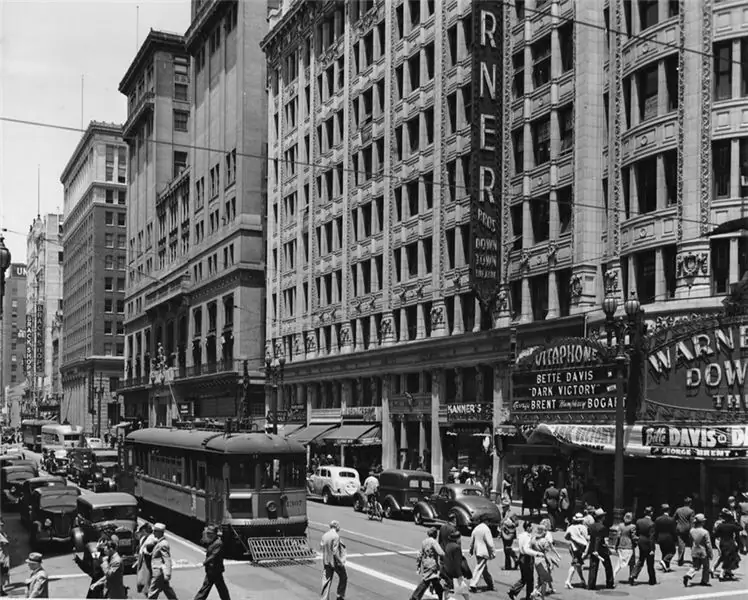
The name of this city in the United States of America can be translated as "city of angels". In fact, the history of Los Angeles, like any other city, contains both light and dark pages. At the moment, this beautiful city in terms of population ranks second in the country, and representatives of probably all nationalities and peoples of the world live here. And the first Europeans who landed on this coast saw the original owners of these lands, Indians belonging to the Chumash and Tongwa tribes.
Opening up new territories
Juan Rodriguez Cabrillo was the name of the captain of the first ship from Europe who sailed across the ocean in search of an earthly paradise. In July 1542, he and his team landed at what is now San Diego Bay. At that time, the settlement of the Yang-Na Indians was located here. The brave navigator wrote down the details of the meeting and first impressions in the ship's log, which can still be seen in one of the Spanish archives.
The next guest from Europe reached these shores only 227 years later. One of his companions recorded the suitability of this area for living, especially since there were already about 30 Indian settlements of the Tongwa tribe. The Spaniards organized a small colony, then, at the direction of the governor, a village was founded, which had a very long name in honor of the Virgin Mary. By 1820, the tiny colony had turned into a fairly large settlement for those times, in which more than 600 people lived.
Mexico or the United States
There was a period in the history of Los Angeles when the settlement belonged to Mexico, though not for long. The result of the Mexican-American war and the peace treaty of 1848 - the settlement became the property of the United States, in 1850 it receives the status of a city. It is clear that this was a turning point that predetermined the further development of the city.
An era of progress
The second half of the 19th century was marked for Los Angeles by the rapid development of agriculture (growing oranges), transport network and trade. The discovered oil reserves attracted finances to the city, the number of residents grew exponentially.
The highlights of Los Angeles' history during this period are summarized:
- 1892 - discovery of oil fields;
- 1913 - construction of an aqueduct, provision of the city with drinking water;
- early 1920s - construction of the first film studios;
- 1932 Olympic Games.
The Second World War played its role in the life of the city - many scientists from Europe moved here, which also contributed to the rapid development of Los Angeles.






